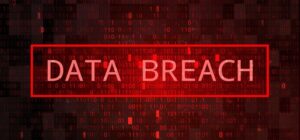16 Billion Passwords Leaked in Largest Data Breach: What You Need to Know

A major cybersecurity disaster has rocked the online world. More than 16 billion passwords have reportedly been leaked in what experts are calling reportedly been leaked in what experts are calling the largest data breach in history. The devastating password leak has sent shockwaves through the global tech community and online safety.
Whether you use social media, bank online, or manage work accounts digitally, the breach could affect you. Here’s everything you need to know about the leak, how it happened, and, most importantly, how to protect yourself.
What Happened in the 16 Billion Passwords Data Breach?

Cybersecurity researches recently uncovered a massive online database containing more than 16 billion stolen login credentials. The collection, dubbed “RockYou2024,” includes data from thousands of past breaches as well as newly stolen credentials.
The database was found on a popular underground hacking forum, which is freely accessible to cybercriminals. Experts believe the passwords and emails come from a variety of sources, including:
E-commerce platforms
Financial institutions
Social media sites
Government databases
This leak isn’t just another random breach. It’s combined repository of years of stolen information, making it an extremely dangerous toolkit for hackers.
How Serious Is This Breach?

The breach is unprecedented in size. For comparison, the infamous RockYou2021 leak contained 8.4 billion entries. This time, that number has doubled.
Cybersecurity analyst Bob Diachenko, Who was one of the first to identify the breach could “enable a new wave of credential stuffing attacks, phishing schemes, and identity theft.”
What makes it even more dangerous:
- Many people reuse passwords across accounts.
- Weak or common passwords like “123456” or “password” are still widely used.
- The list includes login data from both personal and corporate accounts.
If hackers get into just one of your accounts, they can easily get their hands on others.
Who Is Affected?

If you’ve used the internet in the last 10 years, there’s good chance your data was involved. The breach spanned platforms like:
- Facebook, Twitter (X), Instagram
- Amazon, eBay, Flipkart
- Gmail, Outlook, Yahoo
- Netflix, Spotify, and more
Even lesser-known services and government website were targeted.
How to Check If Your Password Was Leaked

You can use trusted websites like:
- HavelBeenPwned (DoFollow Link)
- Firefox Monitor (DoFollow Link)
Enter your email address to see if it appears in any known data breaches. These services are safe, secure, and run by reputable organizations.
What Should You Do Right Now?

If your credentials are part of a breach take these steps immediately:
1). Change your password
Start with your most sensitive accounts:
emails, banking, and work accounts. Use strong and unique passwords for each.
2). Use a Password Manager
Apps like LastPass, Bitwarden, or 1Password can generate and store your complex passwords, eliminating the need to remember them all.
3). Enable Two-Factor Authentication (2FA)
This adds an extra layer of security. Even if a hacker gets your passwords, they won’t be able to access your account without a second step.
4). Monitor for Suspicious Activity
Check your bank statements, emails, and logins. If you notice any unusual activity, reported it immediately.
5). Stay Informed
Subscribe to cybersecurity blogs or follow trusted Twitter accounts like @CyberSecurityInsider for updates.
The Role of Tech Companies
The world’s major tech firms have issued statement following the breach. Google, Microsoft, and Apple are urging users to review their account security settings. Platforms are introducing stronger security features such as passkeys, biometric logins, and alert systems for suspicious login attempts.
What This Means for the Future
This breach is a wake-up call. Our digital lives are more connected than ever, and that means cybersecurity needs to be a top priority.
In the future, we can expect:
- A greater reliance on password-less technologies.
- More investment in AI-powered threat detection.
- Stronger data protection laws and compliance enforcement.
The sift to biometric and multi-factor authentication will likely accelerate. Until then, good password hygiene is your best defense.
Final Thoughts: Don’t Wait Until It’s Too Late